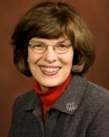 Welcome While teachers relish the thought of summer vacation, we know that some of that vacation is spent planning for next year - evaluating what went well and what you would like to change. This planning could include making lessons more challenging and evaluating how to help students explore their passions in more depth. Therefore, the Educators Guild team asked gifted expert Dr. Felicia Dixon (Associate Professor of Educational Psychology at Ball State University and board member of NAGC) for some ideas about teaching gifted students. We have also included some online resources that may help with planning your future curriculum. As always, please contact us at edguild@davidsongifted.org if we can be of further assistance, and we hope you enjoy your summer!  Q & A with Dr. Felicia Dixon, Gifted Education Expert Q & A with Dr. Felicia Dixon, Gifted Education ExpertQ: What tips do you have for teachers to make learning more interesting for gifted students? Memorization is not the end point of learning. Although basic facts are essential to learning and perfecting a discipline, education must go beyond this. Gifted students often become bored when it comes to memorizing facts; they thrive on learning, not memorizing. Teachers can center classes around thinking skills, allowing students to question, examine, analyze and judge facts rather than memorizing them. Doing so encourages growth in cognition, reason, divergence, convergence, evaluation, ethics and analysis, among other areas, allowing gifted students to learn rather than simply memorize. Q: How can teachers help gifted students choose one specific area of focus when they are talented in many areas? Educational career development occurs over time and includes many smaller proximal decisions as students go through school. Gifted students are often multipotential. When gifted students achieve good grades and academic accomplishment relatively easily, it can be difficult for them to narrow their focus. However, while some students may take a long time to make career choices, others may make them fairly early and focus completely during their schooling. Some interests may be pursued through a career while others may be pursued avocationally. Teachers can help students process these issues by talking and reasoning through decisions, and by encouraging the student to make a Pros/Cons list to consider each choice. They can help the student to realize that decision-making is problem-solving, which may make it a less daunting task, as can discussing the question “What is the best choice for you – and why?” to help the student gain perspective on the issue in consideration. Teachers should also rely on competent guidance counselors who may help students gain access to apprenticeships and mentoring situations in careers of interest. Resources As you modify old lesson plans and develop new ones, here are some resources that might be helpful for gifted students:
|
|
Davidson Institute Updates Educators Guild - Offering Presentations Across the Country For details, please email EdGuild@davidsongifted.org. 2012 Davidson Fellows Scholarship Applications Davidson Young Scholar Applications Available The Davidson Academy of Nevada |
|
* * * |
|
Visit the Davidson Institute's
Educators Guild Newsletter archive page. |